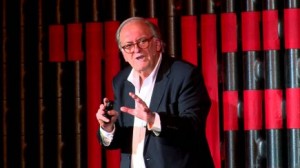This five part mini-series (!) is not glamorous. It tries to uncover some inconvenient truths via a reverse engineering of failure . The failure of change and transformation programmes. A poor track, collective management record of about three quarters failure.
Now, visualise for a second: 75% of the time your IT system is down; 75% of the time, your recruitment process fails to appoint the right people; 75% of your forecast is wrong. Get the picture? Yes, heads will roll. But in this mythical area of multi-million pound Big Consulting change, 75% seem to be an acceptable rate. They are not dismissed, they get an extension of the contract.
Let me unpack five reasons usually given, unpack five arguments, uncover one or two fallacies.
(1) For the prosecution: stakeholders were not properly involved, so no wonder it failed.
My experience is it’s the opposite. ‘Everybody and their uncle’, as the idiom goes, seems to have been involved: users, super-users, focus groups, project teams, steering committees, endless cascaded workshops and off-sites looking for a ‘democratic’ answer. As far as I am concerned, we involve too many people, not too few.
Debates and deliberations about what is to be deliberated in the first place, the format of the deliberation, who should be involved in deliberating, the deliverables of the deliberation and the naïve belief that deliberating at scale means change at scale, dominate corporations air time.
There is a pseudo-democratic, uncritical, naïve, default, very entrenched management practice position that proclaims that over-inclusiveness is good. A cascade of workshops, myriad of focus groups, roadshows and big binders, will be the mechanism to engage people. And if we do that, then we will be successful. Nobody possessing this naïve view of organizational life should occupy a leading position in HR/OD/L&D.
Very often, those who challenge this are accused of being authoritarian, non-inclusive promoters of culture dictatorship. It’s a sign of the typical bipolar illness that we suffer from in corporate life.
Pseudo-democratic crowdsourcing of everything is an alibi for bad leaders who relinquish their responsibility. Not involving some key people in some key initiatives, particularly those who could block them, is leadership arrogance. Not understanding the key to change, lies with a small number of highly influential individuals, is not understanding organizational life. Yet, organizations are not very good at getting the dose, the time, the sync and the geography of change right.
Massive involvement of ‘everybody and their uncle’ also has unintended liabilities:
- It delays unnecessarily, the timely launch of decisive action, sometimes for months, if not years
- It raises high expectations in the crowd. ‘Be careful what you are asking for, you might get it’. Those who are delighted to be asked are often the same who expect their input absorbed and prominent in black and white. If not, the disappointment is massive and next time you ask, they won’t be there.
Who needs to know?, who needs to be involved?, when do we stop asking?, who will block this?, who really needs to be behind this?, These are magic questions.
I repeat, it’s not a lack of involvement that kills projects, it’s too much of it.
________________________________________________________________________________________________
Watch our webinar on The Myths of Change [1]. Traditional management and a great deal of academic thinking is responsible for the colossal failure of ‘change programmes’.
The first in our series of webinars debunks uncontested assumptions in this area and uncovers the alternatives, whilst considering why this debunking of myths is even more relevant today in the current exceptional Covid-19 environment.
To change to ‘the new normal’ we must think and act differently in the management of our organizations, particularly in the areas of change and transformation. We must abandon change as something imposed in favour of people becoming true agents. Organizations that have mastered this have been in ‘the new normal’ for a while!
What attendees said:
‘Thank you for the opportunity to participate in this fantastic webinar. Both the depth of the discussion between Leandro and Carlos and the very intensive exchange in the chat inspired me.’
It was a great pleasure to participate in today’s webinar…. If you would have been sitting next to me, you would have seen a lot of ‘head nodding’ and heard a couple of loud ‘yes’es’ from the bottom of my heart.
WATCH NOW [1]
________________________________________________________________________________________________
Dr Leandro Herrero is the CEO and Chief Organization Architect of The Chalfont Project [2], an international firm of organizational architects. He is the pioneer of Viral ChangeTM, a people Mobilizing Platform, a methodology that delivers large scale behavioural and cultural change in organizations, which creates lasting capacity for changeability.
Dr Herrero is also an Executive Fellow at the Centre for the Future of Organization, Drucker School of Management. An international speaker, Dr Herrero is available for virtual speaking engagements [3] and can be reached at: The Chalfont Project [4].
His latest book, The Flipping point – Deprogramming Management [5], is available at all major online bookstores.

